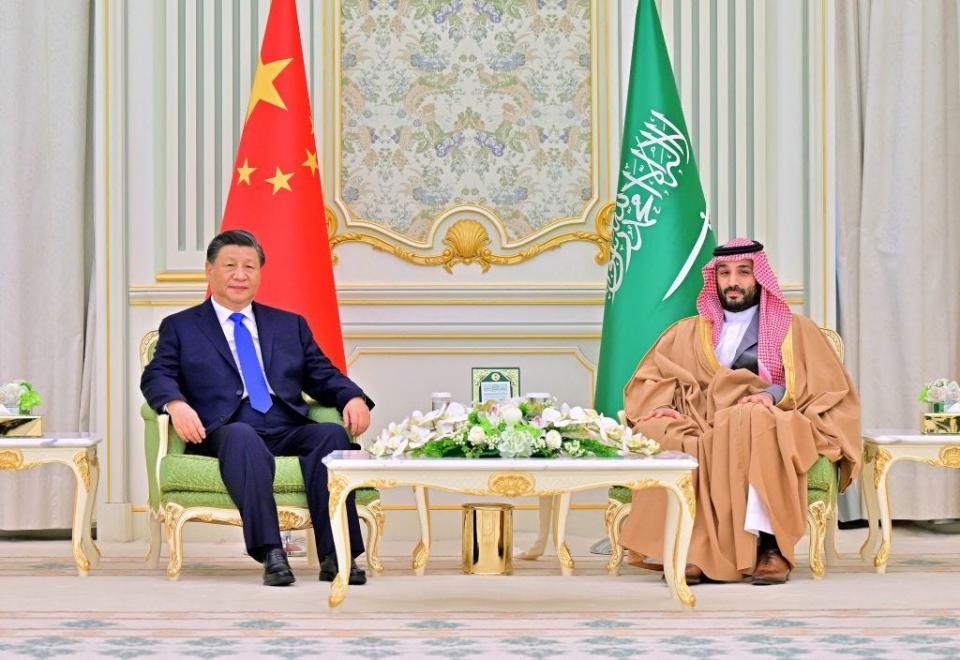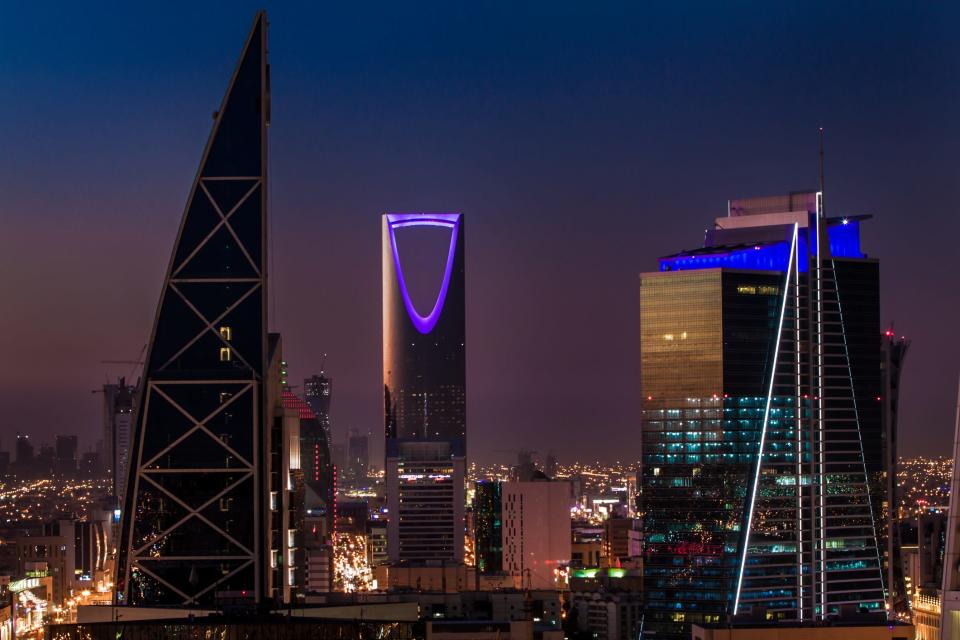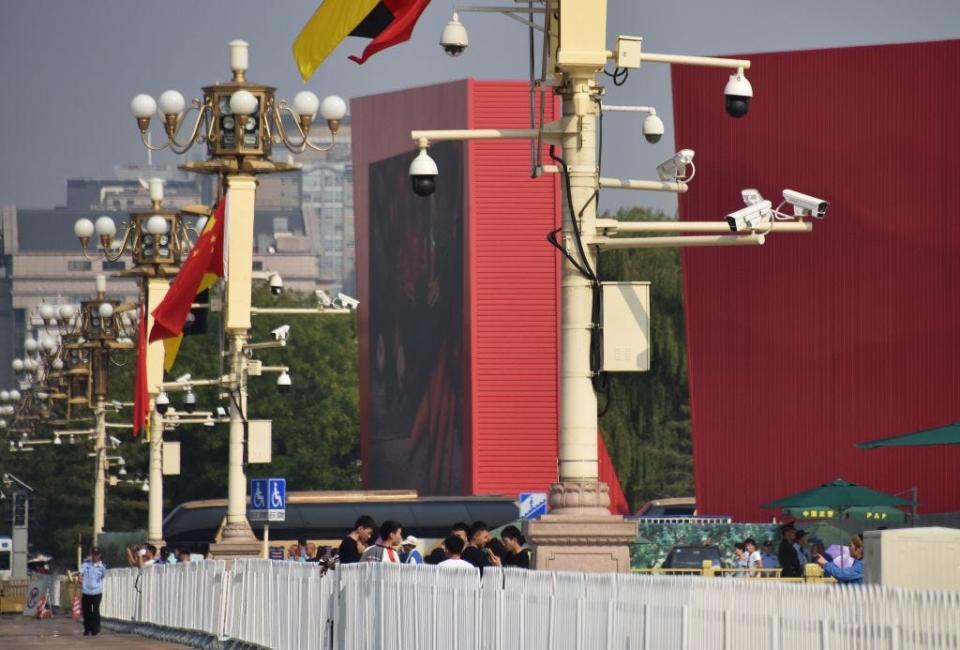Saudi Arabia is seeking billions in Chinese investment for Neom. But it comes with a massive risk.
Saudi Arabia is seeking investment for its Neom megacity project from China.
In recent years, China has signed various tech deals with Saudi Arabia.
But the US is warning of consequences if the Saudis draw too close to China.
At a recent exhibition in Hong Kong, Saudi Arabia showcased its futuristic vision for its planned Neom megacity.
Among the exhibits were designs for The Line, a sprawling residential structure consisting of two skyscrapers that were originally intended to house nine million people.
It also showcased plans for a network of underground tunnels that residents could use to travel between different regions and a desert ski resort in the mountains.
It was part of Saudi Arabia's drive to secure billions in new investment for the project, which is the centerpiece of Saudi ruler Mohammed bin Salman's Vision 2030 strategy.
Vision 2030 is meant to reorient the kingdom's economy away from fossil fuels and toward innovation and technology.
But the vast scale and cost of the project, which reports say could spiral to more than a trillion dollars, is posing difficulties even for Saudi Arabia, despite its reserves of oil wealth.

A growing alliance
The exhibition helped make Neom "less mysterious," but reactions were "mostly neutral," Leonard Chan, chair of the Hong Kong Innovative Technology Development Association, told AFP.
There remain hopes in Saudi Arabia, however, that China will invest billions in the project.
One of the main areas of recent cooperation between the states has been technology, with Saudi Arabia working with China on AI and surveillance tech projects as it seeks to transform itself into a tech superpower.
Robert Mogielnicki, an analyst at the Arab Gulf States Institute in Washington, told Business Insider that Chinese investors likely see opportunities in Neom in sectors including construction, renewable energy, telecommunications, and smart city-related services.
"Chinese economic actors interested in Neom likely see a longer-term project pipeline with various opportunities to generate profits," said Mogielnicki.
But it's an alliance of growing concern to Saudi Arabia's main geopolitical ally, the US.

A shared authoritarian vision
One of the main tools China's leader Xi Jinping is using to broker alliances globally, particularly with nations ambivalent about the West's insistence on human rights, is the prospect of access to China's sophisticated surveillance technology.
China has developed AI-enabled face recognition software that allows officials to monitor citizens in real time and access data on aspects of their private lives, including health, employment, and financial histories.
It's a tool with an obvious appeal for Crown Prince Mohammed, who is accused of brutally persecuting dissidents and critics.
China sees Saudi Arabia as not just a business opportunity but a way of undercutting the influence of its longtime Saudi ally, the US.
In April, Saudi Arabia's Public Investment Fund-subsidiary Alat signed a deal with Dahua Technology, one of China's most important surveillance technology firms. The US has sanctioned Dahua Technology over national security concerns.

The creation of surveillance cities
Unlike Western firms, which have policies to protect data, Chinese companies have fewer compunctions about sharing the information they collect, Camille Lons, an analyst at the European Council on Foreign Relations, told BI.
"Gulf countries are indeed significant clients of Chinese surveillance technologies," said Lons. "The fact that Chinese companies are more open to share the collected data than their Western counterparts makes them attractive partners to the Gulf states."
It's an aspect of China's involvement in Neom that's alarmed some critics.
Neom is being designed as a "smart city," whose services will be regulated by data collected from residents through smart phones or surveillance cameras. Last year, analysts told BI that data collected about Neom residents through Chinese technology could be used as part of a mass surveillance program.
"They're being marketed as 'eco cities' or 'smart cities,' we call them surveillance cities," said Marwa Fatafta, an analyst with digital rights organisation Access Now, of cities such as Neom whose infrastructure uses Chinese data services and surveillance technology.

But there are risks for the Saudis
Saudi Arabia's increasingly close ties with China are of growing concern to the US.
The Biden administration is seeking to broker a normalization of relations between Saudi Arabia and Israel and is offering the Saudis potential access to valuable nuclear technology. An alternative deal would offer the Saudis enhanced US security guarantees.
But as a condition for any agreement, the US is demanding that the Saudis restrict their new tech alliance with China.
"The main risk today to Saudi Arabia's tech cooperation with China is the growing China-US tech war. The US is increasingly putting Riyadh under pressure over its cooperation with Chinese companies in the tech sector," said Lons.
The US is concerned that China could seek to exploit its relationship with Saudi Arabia to steal US tech secrets, with chips used to power AI systems among the areas of concern, The New York Times reported.
"US companies are now making clear that if Saudi Arabia wants to access advanced US technologies, it will need to make a choice and prove that it won't serve as a backdoor to China to access those technologies," said Lons.
But with Saudi Arabia reportedly considering scaling back some of its flagship Neom projects amid funding concerns, it will likely continue walking the tightrope between closer ties to China and potential US repercussions as it seeks to supercharge its Vision 2030 plans.
Read the original article on Business Insider

 Yahoo News
Yahoo News 
